Biblio File
Soldiers’ Stories
This Veterans’ Day, when we honor the contributions of the men and women in the U.S. Armed Forces, we’re thinking about books told from the perspective of soldiers, pilots, medical personnel, and everyone who’s served in combat.
We asked our expert NYPL staff to suggest some books—fiction and nonfiction—that shed light on military experiences.
Civil War
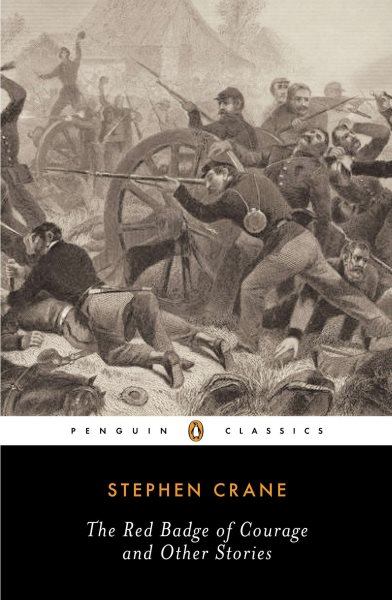
The Red Badge of Courage. Full stop. Stephen Crane's novel is not first-person but does place us in Henry Fleming’s head. As a bonus, the fictional 304th may have been based on the Orange Blossoms, the 124th New York Volunteer Infantry Regiment from the upper Hudson Valley. These soldiers included volunteers from my hometown on New Windsor. —Joshua Soule, Spuyten Duyvil
World War I
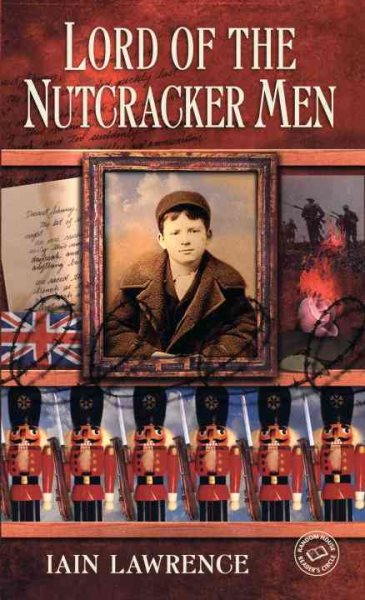
I LOVE Lord of the Nutcracker Men by Iain Lawrence. A young boy’s father goes off to the trenches of World War I, and the first-person bit is in his letters home and visually in the carved wooden soldiers he sends back to his boy, deteriorating as his father’s mental health deteriorates. So powerful. —Danita Nichols, Inwood
I often think of the Army nurses who served overseas in wartime as unsung heroes of Veterans Day. A favorite memoir is Vera Brittain’s Testament of Youth. Vera witnessed her brothers, their friends, and her sweetheart all sign up to serve in the early days of World War 1. Not wanting to be left behind and to do her part, she abandoned her studies at Oxford in 1915 to be a nurse in France. It is both a story of the horrors of war and a lament for all those she lost. —Anne Rouyer, Mulberry Street
Since the scheduling of Veterans Day links to the ending of World War I, I’ll second the recommendation for Vera Brittain’s memoirs and add in two current-day mystery series about WWI volunteer nurses Bess Crawford (by Charles Todd) and Maisie Dobbs (Jacqueline Winspear). —Barbara Cohen-Stratyner, Exhibitions
Erich Maria Remarque’s All Quiet on the Western Front, the classic novel of World War I, was written by a German, in the voice of an ordinary German infantryman doing his best not to win glory for himself or his country, but simply to survive to the end of the war. He almost made it. Remarque’s epigraph says, “This book is to be neither an accusation nor a confession, and least of all an adventure, for death is not an adventure to those who stand face to face with it. It will try simply to tell of a generation of men who, even though they may have escaped shells, were destroyed by the war.” —Kathie Coblentz, Special Collections
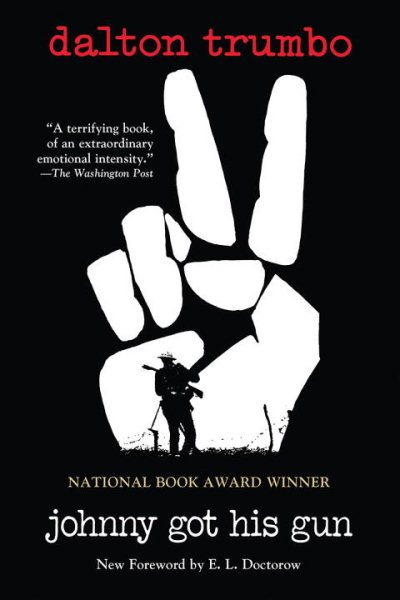
One of my favorite books of all time is Johnny Got His Gun by Dalton Trumbo. A harrowing look at World War I, told in first person, and a scathing indictment of war in general. It is an intensely personal story that can be life altering. I recall reading the book in high school and it had a profound effect on my thinking. It turned out to be the book I wrote about in my college application essays because it was so incredibly influential. —Jeff Katz, Chatham Square
A fictionalized account of true events, the Harlem Hellfighters by Max Brooks recounts the struggle of the first African American regiment who went into combat for our nation. Full of courage, valor, and patriotism, this is one of those stories that reveals a country’s ugly past while at the same time revealing a group of heroes’ beautiful sacrifice. -- I salute them. —Daniel Norton, Mid-Manhattan
Another vote for The Harlem Hellfighters. The book, graphic both in format and in content, does not shy away from the brutalities they experienced as soldiers and as African Americans. —Althea Georges, Mosholu
Also worth mentioning is the slim volume, The Collected Poems of Wilfred Owen. Owen was a British soldier who died in combat in the last days of the war. Throughout his service time, he wrote poems about the experience of war—the boredom and the terror, the camaraderie, the excitement, and the misery. Reading these poems is a remarkable experience, a true soldier’s voice comes through. —Jeff Katz, Chatham Square
World War II
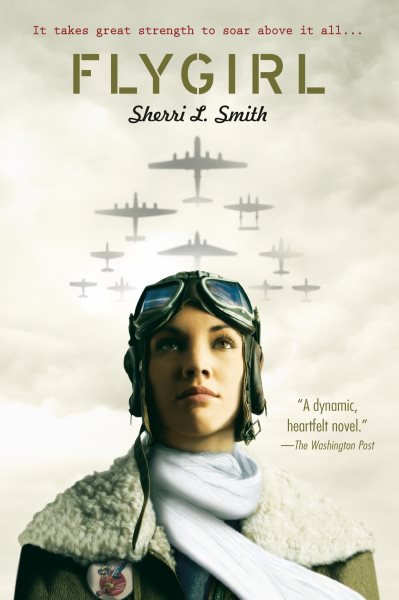
In Flygirl by Sherri L. Smith, Ida Mae Jones dreams of becoming a pilot, but she has two strikes against her: She’s black, and she’s a girl. When America enters into war with Germany and Japan, the Army creates the Women Airforce Service Pilots (WASP) and Ida sees this as her one chance. —Nicola McDonald, Jerome Park Library
For fans of the HBO miniseries The Pacific and its popular precursor Band of Brothers, I recommend E. B. Sledge’s With the Old Breed, a stark and haunting first-hand account of Sledge’s experiences at Okinawa and Peleliu during WWII:
I am the harvest of man’s stupidity. I am the fruit of the holocaust. I prayed like you to survive, but look at me now. It is over for us who are dead, but you must struggle, and will carry the memories all your life. People back home will wonder why you can’t forget.
—Crystal Chen, Hamilton Grange

Slaughterhouse-Five by Kurt Vonnegut is a remarkable soldier’s story. The first-person narrative is essential to the plot. Time travel makes it all the more imaginative. Vonnegut’s writing and his rather bizarre sense of humor set up the reader to enjoy this story, which is a reflection of the experiences of a soldier and POW who survives the horrors of the fire-bombing of Dresden. —Virginia Bartow, Rare Books
Ernie’s War: The Best of Ernie Pyle should be part of any canon on war literature. Before his death on Okinawa, Pyle told the tales of American soldiers, often in first person perspective, in all their grim reality. He won a Pulitzer for his war reporting in 1944. —Joshua Soule, Spuyten Duyvil
For teens, there is the tense and nerve-racking Code Name: Verity by Elizabeth Wein. Verity is a young British intelligence agent who’s been parachuted into France to help with the resistance but she’s been caught by the Nazis and now she’s being interrogated. Will she break under torture? Will she be rescued? Verity is willing to endure torture and do whatever it takes to save her friends and her country. —Anne Rouyer, Mulberry Street
Vietnam
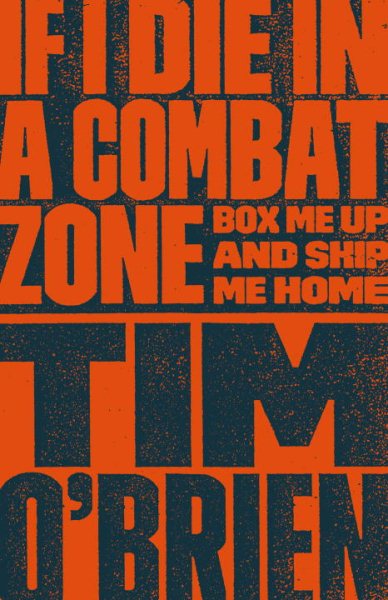
If I Die in a Combat Zone, Box Me Up and Ship Me Home is Tim O’Brien’s autobiographical account of fighting the Vietnam War. It’s even more heart-breaking than his fiction-based-on-truth novel The Things They Carried, if that’s possible. —Rebecca Dash Donsky, 67th Street
I was just going to recommend The Things They Carried! Now I’ll have to go read this one too. Anyway, to answer the question of why Tim O’Brien:
If at the end of a war story you feel uplifted, or if you feel that some small bit of rectitude has been salvaged from the larger waste, then you have been made the victim of a very old and terrible lie. There is no rectitude whatsoever. There is no virtue. As a first rule of thumb, therefore, you can tell a true war story by its absolute and uncompromising allegiance to obscenity and evil. —Kay Menick, Schomburg Center for Research in Black Culture
I would like to recommend Patrol by Walter Dean Myers.
... I write a letter to someone I love. I wonder if my enemy is writing a letter.
I am so tired.
I am so very tired of this war.
—Louise Lareau, Children’s Center
Matterhorn by Karl Marlantes. The soldiers in this book struggle mightily against leeches, tigers, mosquitoes, and all manner of beasties, and the plot is gripping. —Jenny Baum, Jefferson Market
Fallen Angels by Walter Dean Myers is the story of a 17-year-old from Harlem who does not know what his future holds. He volunteers for the army and goes off to Vietnam in the 1960s. There he witnesses the horrors of war. The companion novel is Sunrise Over Fallujah. —Lilian Calix, Morningside Heights
Iraq and Afghanistan

In 2010, when I was deployed to Iraq, I had to lie about who I was, because I am a gay soldier and I didn’t want to lose my job. My question is, under one of your presidencies, do you intend to circumvent the progress that has been made by gay and lesbian soldiers in the military?
Stephen Snyder-Hill asked during the 2011 Republican primary debate. His memoir, Soldier of Change: From the Closet to the Forefront of the Gay Rights Movement, offers a candid account of life in deployment and poignant reflections on activism, politics and the freedom to love. —Miriam Tuliao, Selection Team
In No Easy Day: The Firsthand Account of the Mission that Killed Osama Bin Laden, Mark Owen gives us a personal account of one of the most memorable special operations in the history of the United States. This book will leave you with an understanding of the warriors that keep America safe. —Elisa Garcia, Bronx Library Center
Redeployment by Phil Klay takes readers to the frontlines of the wars in Iraq and Afghanistan, asking us to understand what happened there, and what happened to the soldiers who returned. —Jennifer Craft, Mulberry Street
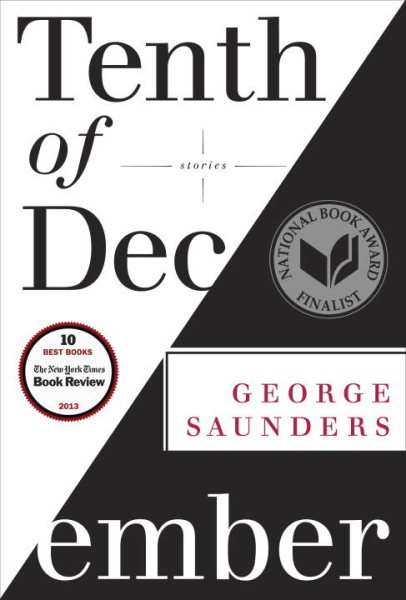
I recommend “Home,” a short story by George Saunders that can be read online via the New Yorker or in his recent (amazing) collection Tenth of December. It’s told from the perspective of a recently-returned veteran (ambiguously Iraq or Afghanistan) who feels disoriented and detached from American culture and family life that have changed greatly in his absence. He struggles with persistent guilt over his experiences and a public blithely ignorant of both his sacrifices and the war that demanded them, only able to offer the empty refrain “thank you for your service.” Saunders characteristically draws a sense of humanity and hope from a complicated, difficult subject. —Meredith Mann, Collection Development
The Yellow Birds by Kevin Powers is a powerful, evocative story about war and its ramification on those who serve. It’s a story of two soldiers who takes vastly different paths in a war with no end. —Susen Shi, Seward Park
Other Conflicts

Daniel Anselme’s On Leave takes place during the Algerian Revolution (1954-1962). It follows three soldiers who come home for a week long leave to Paris and struggle with feelings of shame, dread, and disconnectedness in the face of normalcy after being away at war. The spare writing invokes the poignancy of the soldiers’ distress and discomfort with the thoughts, ideas, and actions of people who have not been at the front. —Jessica Cline, Mid-Manhattan
This is a bit off the beaten track, perhaps (and about a pilot rather than a soldier) but I’d recommend the play Grounded by George Brant. It’s a one-woman play about a fighter pilot who is taken out of commission after becoming pregnant and re-assigned to remote piloting of a military drone. —Melisa Tien, Library for the Performing Arts
Agincourt by Bernard Cornwell tells the story of that famous battle through the eyes of Nicholas Hook, an English archer under Henry V. It’s rich in details and a perspective not always articulated in treatments of historical wars. —Christopher Platt, Library Services
I love the Old Man’s War by John Scalzi for imagining a world in which soldiers have the minds and maturity of 75-year olds and are sent to fight aliens over colonized worlds. —Michelle Misner, Humanities and Social Sciences Research Divisions
Have trouble reading standard print? Many of these titles are available in formats for patrons with print disabilities.
Staff picks are chosen by NYPL staff members and are not intended to be comprehensive lists. We'd love to hear your ideas too, so leave a comment and tell us what you’d recommend. And check out our Staff Picks browse tool for more recommendations!
Read E-Books with SimplyE
 With your library card, it's easier than ever to choose from more than 300,000 e-books on SimplyE, The New York Public Library's free e-reader app. Gain access to digital resources for all ages, including e-books, audiobooks, databases, and more.
With your library card, it's easier than ever to choose from more than 300,000 e-books on SimplyE, The New York Public Library's free e-reader app. Gain access to digital resources for all ages, including e-books, audiobooks, databases, and more.
If you don’t have an NYPL library card, New York State residents can apply for a digital card online or through SimplyE (available on the App Store or Google Play).
Need more help? Read our guide to using SimplyE.